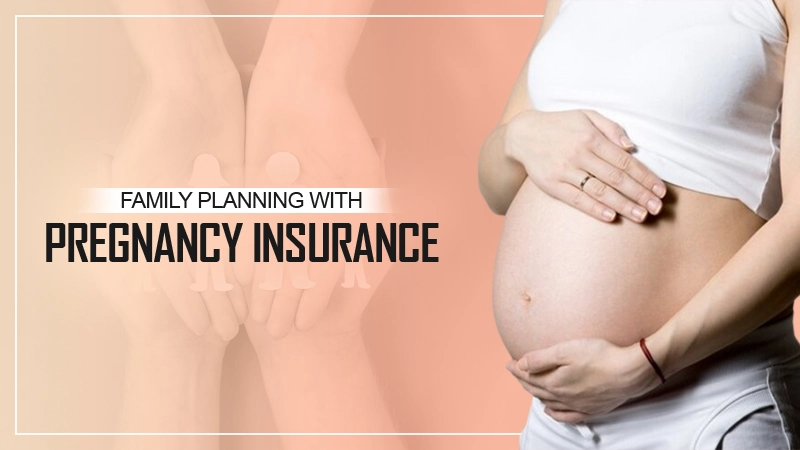
Being pregnant is a joyful and extremely important journey in a woman’s life. Along with excitement and expectation, comes the financial factors that you need to be aware of.
Maternity care can be quite expensive, including everything from prenatal checkups to labor and delivery, and might dive out of your budget. In that case, pregnancy insurance can prove to be a useful tool for expecting parents.
Let’s dive into the specifics of pregnancy insurance in this article, including why it’s significant and some crucial things to remember.
Pregnancy Insurance: What Is It?
Pregnancy insurance or some people might know it as maternity insurance or maternity coverage is a type of health insurance that covers all costs related to pregnancy, childbirth, and postnatal care.
The insurance guarantees that the expected parents won’t have to break their bank account or criminal death in order to receive the necessary medical care.
So it is important that every expecting parent should know about the advantages and the importance of pregnancy insurance.
Importance of Pregnancy Insurance
If you are planning to have a child or are already expecting, then pregnancy insurance is one of the most important things to consider. Pregnancy insurance plays a crucial role in ensuring the health and well-being of the expectant mother and the baby. Here are some key points highlighting the importance of insurance.
- Access to parental care — The insurance ensures and provides access to parental care, which includes check-ups, screenings, and tests. This will help maintain the baby’s and the mother’s health.
- Financial protection — Pregnancy and childbirth can be expensive, the causes of which range from routine parental visits to labor and delivery expenses. Pregnancy insurance offers financial protection by covering a significant portion of all these expenses and reduces the financial burden on the parents.
- Improved health outcome — If the expecting parents are not able to take regular check-ups and screenings, it might affect the baby’s health. But with pregnancy insurance, the mother can undergo daily health check-ups without breaking her bank account. This will ensure the overall improved health of the baby and the parent.
- Encourages timely care — With pregnancy insurance in place, expected mothers are more likely to seek timely medical care without delay since they have financial support.
Key Elements of Pregnancy Insurance
- Prenatal Care — Prenatal checkups, screenings, and tests to keep an eye on the mother’s and the unborn child’s health are usually covered by pregnancy insurance. This involves routine physical examinations, ultrasound scans, and other laboratory testing to identify any possible issues early on.
- Labor and Delivery — The cost of labor and delivery is one of the biggest costs related to pregnancy. Hospital costs, doctor fees, anesthesiology services, and medical equipment required during childbirth are all covered by maternity insurance.
- Postnatal Care — After giving birth, the assistance continues. Postnatal care, which includes follow-up appointments for both the mother and the infant, is frequently covered by pregnancy insurance. Postpartum examinations, lactation consultants, and newborn care services might be included in this.
Understanding Pregnancy Insurance Coverage Options
When selecting pregnancy insurance, it is important to take care of the following factors:
- Coverage details: Before selecting pregnancy insurance, you must review the coverage details, which include parental care, delivery options, and postnatal services. After looking over all the details, you must ensure that the plan aligns with your needs and preferences.
- Cost and affordability: compare all the expenses associated with the insurance plan, which include premiums, deductibles, and out-of-pocket expenses. Compare everything and choose the one that fits your budget the best.
- Policy exclusions and limitations: Of course, pregnancy insurance will not cover all your pregnancy expenses. There are several inclusions and limitations to every policy, such as waiting periods, pre-existing conditions, and maximum coverage limits.
Be aware of any restrictions that may impact your coverage during pregnancy. Understand these limitations well, and check if they align with your plan.
Conclusion
Pregnancy insurance offers expectant parents great help with financial support for all medical expenses so that parents can embark on a journey to parenthood confidently.
Considering all the factors and options, choosing the right pregnancy insurance can help families significantly so that they can celebrate the new member of the family without worrying about the burden of all the medical expenses.
Investing in pregnancy insurance is not only a smart and budget-friendly move but it also displays your compassion towards parenthood and ensures a smooth and memorable journey in this important period of your life.
FAQ
Ans: Yes. Pregnancy is also considered as one of the pre-existing conditions for availing pregnancy insurance. But you have to apply for the insurance ASAP because there might be a long wait to avail the benefits of the policy.
Ans: The initial waiting period is the time between the policy’s start date and when the policyholder becomes eligible to claim maternity benefits. It is at least a minimum of 30 days.
Ans: Star Health Insurance, Blue Cross Blue Shield, Aetna, and Kaiser Permanente offer the best health insurance plans for pregnant women.
Ans: The aim of maternity insurance is to reduce financial uncertainty and make accidental loss manageable by providing financial support throughout the pregnancy period.